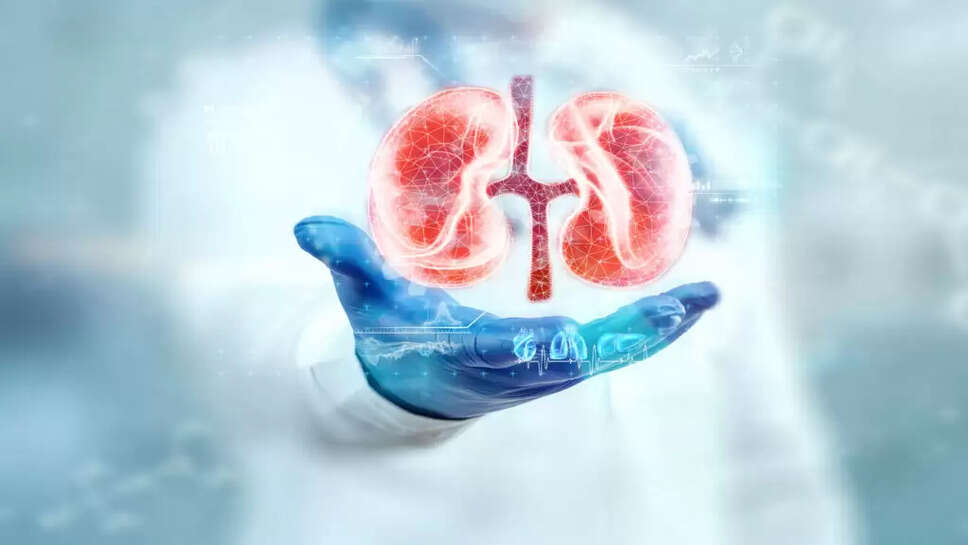Paediatrician Sounds Alarm: ‘Too Much Protein’ Damaging Youth Kidneys

In a country where fitness culture is booming and body image ideals are rapidly shifting, a new crisis is quietly brewing—this time inside the human body. More specifically, inside the kidneys of young adults.
From whey shakes and protein-rich diets to unregulated supplements, the pursuit of muscle is becoming increasingly aggressive among teenagers and young professionals. However, doctors are now raising red flags over what they describe as a “silent epidemic” of kidney strain in otherwise healthy youth, largely triggered by excessive protein intake.
A Wake-Up Call From the OPD
Dr. Nishita Rao, a paediatrician based in Mumbai, says she has noticed an uptick in patients as young as 16 showing early signs of kidney distress.
“Children and young adults are turning up with unusual fatigue, frequent urination, and protein traces in urine,” she explains. “Many of them are gym-goers or trying intermittent fasting and keto diets. When we investigate their dietary intake, we find they are consuming nearly triple the recommended protein levels.”
Her warning is echoed by nephrologists and dietitians, who say that excessive protein—especially from artificial or processed sources—can overburden the kidneys, leading to long-term health complications.
How Much is Too Much?
The average adult requires approximately 0.8 grams of protein per kilogram of body weight per day. For a 70 kg individual, that’s about 56 grams. But in gyms and online forums, the popular recommendation is often 1.5–2.5 grams/kg—far above medical guidelines, especially for non-athletes.
“There is a misconception that more protein equals more muscle,” says a clinical nephrologist from Delhi. “But what they forget is that the excess protein has to be processed and excreted, primarily by the kidneys. Over time, this constant overload can accelerate kidney damage.”
Supplementation Without Supervision
Part of the problem lies in how easy it is to obtain protein supplements. Supermarkets and online stores are flooded with options: mass gainers, whey powders, protein bars, amino acid capsules, and more. Most are marketed with lofty promises—‘get ripped fast’, ‘lean muscle in weeks’, ‘burn fat with protein power’.
Young adults, eager to see results, often stack multiple supplements without understanding how much protein they’re really consuming.
“I was taking whey after workouts, having eggs and paneer in every meal, and also drinking casein before bed,” admits 21-year-old Akshay, a college student. “That was over 150 grams of protein a day.”
He later developed lower back pain and was diagnosed with early signs of nephropathy.
The Kidneys’ Burden
The kidneys are responsible for filtering waste and maintaining fluid and electrolyte balance. When excess protein is broken down, it creates more nitrogenous waste (like urea and ammonia), which increases the filtration workload.
Chronic protein overload can lead to:
-
Hyperfiltration injury
-
Increased glomerular pressure
-
Dehydration and electrolyte imbalance
-
Risk of kidney stones
These problems are compounded in individuals who already have borderline health issues like high blood pressure, pre-diabetes, or hereditary kidney disease—often undetected in early adulthood.
Gym Culture and Peer Pressure
The surge in high-protein diets isn't just a personal trend—it’s a cultural one. Social media is saturated with fitness influencers advocating protein-heavy routines. Gym trainers, who often lack formal nutrition training, push bulk and cut cycles with little regard for individual health conditions.
“It’s become almost fashionable to carry a shaker bottle everywhere,” remarks a senior nephrologist. “But fitness goals have to be personalized. Not everyone’s kidneys are equipped to handle a wrestler’s diet.”
What’s worrying is how few young adults actually get their creatinine levels or glomerular filtration rate (GFR) checked regularly.
Reversing the Damage
The good news? Early-stage kidney stress can often be reversed if caught in time. The key lies in awareness, moderation, and regular health checks.
Doctors recommend:
-
Limiting daily protein to medically appropriate levels
-
Balancing intake between plant and animal sources
-
Avoiding unregulated supplements
-
Drinking plenty of water
-
Getting kidney function tests every 6–12 months if following a high-protein diet
A Dietitian’s View
Not all protein is bad. In fact, protein is essential—for muscle repair, hormonal balance, and immune function. But like all nutrients, it must be consumed in balance.
“People forget that even dals, grains, and vegetables provide protein,” says a sports dietitian. “You don’t always need supplements unless you're a professional athlete or have special requirements.”
She emphasizes cycling protein intake and adding rest days for the kidneys, just like rest days are needed for muscles.
Toward Smarter Fitness
It’s time for a shift in the fitness narrative. While the aesthetics of a toned body may be appealing, it should not come at the cost of long-term organ damage.
Paediatricians and nephrologists agree: Fitness should not be about extremes, but about sustainable health. They urge young adults to focus on balanced training, holistic nutrition, and informed decision-making.
In the end, building a healthy body isn't just about what you can lift or how you look in the mirror—it's about what's happening beneath the surface. And no six-pack is worth sacrificing a pair of healthy kidneys.
.jpg)